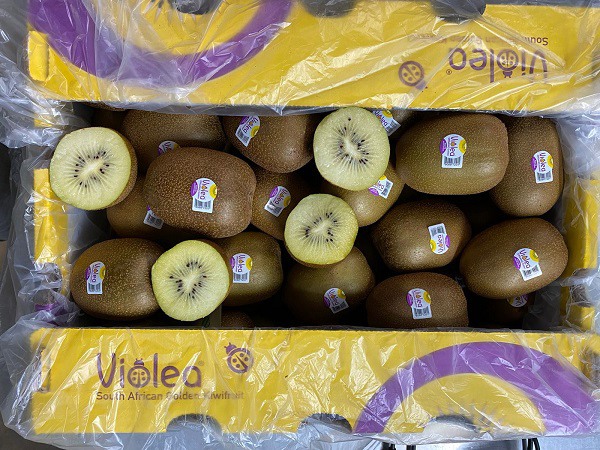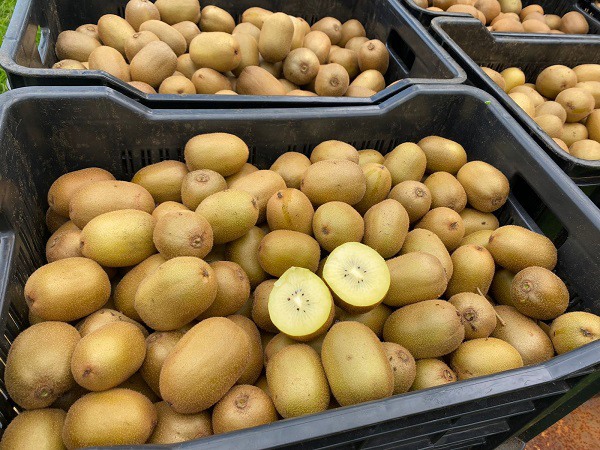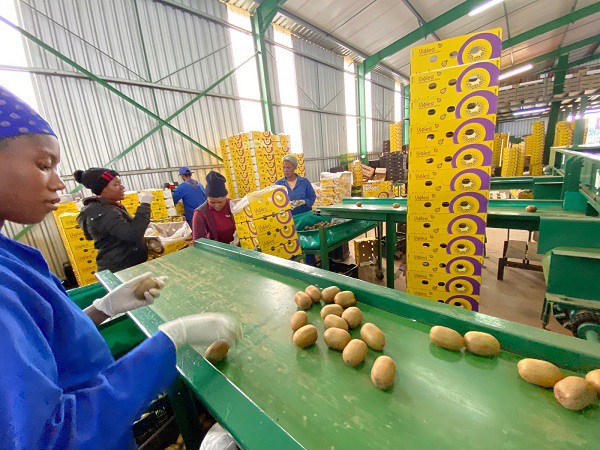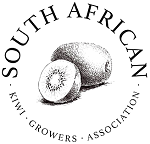“We’re trying to build a gold kiwi industry. At the moment there are small volumes scattered around South Africa but within five or ten years we’ll have large volumes of good quality with which to become a player in the worldwide market,” says Jonathan Trusler, one of the earliest gold kiwi growers in South Africa, which he does organically in Magoebaskloof, Limpopo Province.

A cluster of four farms in Magoebaskloof pooled their gold kiwi volumes this season (they ended the harvest at the end of March) and under the Violea brand, they produced 200 tonnes in total, double their production last year.
“We get really good premiums with exports to established markets for gold kiwi like Europe, Canada, Asia and the Middle East. Our fruit sold very well this year. However, we still have low volumes which get snapped up pretty quickly.” Technical teams from Italy visit their farms during critical times of the year to get the best yield and the best quality, he says.
Technical teams from Italy visit their farms during critical times of the year to get the best yield and the best quality, he says.
In future large volumes, all certified organic, will be coming from the Mountain Organic Kiwi (MOK) farm’s 25 hectares of gold and red kiwis in Magoebaskloof.
He remarks that all of their gold kiwis (apart from early season kiwis flown out to Asia) were shipped from Durban to avoid the congestion at Cape Town.
South Africa’s kiwi export window will be eroded in time
“The tricky thing is that in South Africa we’re chasing a window and the window is there with nice potential but there’s always a danger that the window gets filled up as kiwis are stored for longer in the Northern Hemisphere and here growers are harvesting earlier. We’re saying there’s a window in the short-term but in the long-term it is probably going to get eroded more and more.”

Jonathan says: "South African kiwis should be able to compete through quality, regardless of the window"
There are between 400 and 550ha of gold kiwis (not all in production yet). The South African Kiwi Organisation, chaired by Jonathan, is compiling data on the extent of the kiwi production of all varieties.
Research partnership with University of Pretoria
“We’ve taken some nice strides with the organisation, for instance a research partnership with the Forestry and Agricultural Biotechnology Institute (FABI) at the University of Pretoria. It is a three-year research partnership with a doctoral student who is researching kiwi diseases and pests.”
Such an agreement would have been impossible without a formal organisation, he remarks. The South African Kiwi Organisation currently has around 50 members, mostly gold kiwi growers, but it’s open to growers of all kiwi varieties.
He says that they are wary of diseases affecting kiwifruit in other parts of the world such as the Brazilian kiwi wilt and PSA (Pseudomonas syringae actinidiae) which can cause large scale damage to kiwi orchards. “We have different climatic conditions in South Africa so we don’t know if our kiwifruit orchards are vulnerable in the same way but before this year we had no research basis to work from.”
Gold kiwi production is still a high-risk undertaking, he notes, and only in four or five years will they be in possession of a solid base of understanding of crucial factors like winter chill requirements of the new gold varieties and yield capabilities for various regions across South Africa.
This is what he conveys to the many interested parties who call for information on growing gold kiwis. “Many industries in South Africa aren’t doing that well and farmers are considering gold kiwis. I’m trying to be very cautious: there is definitely potential for good returns but the risk is still very high. We still don’t know which varieties will thrive in various regions.” For more information:
For more information:
Jonathan Trussler
South African Kiwi Growers’ Association
Tel: +27 83 880 8787
Email: jon@mokiwi.co.za
https://www.mokiwi.co.za/
https://www.sakiwi.co.za/
